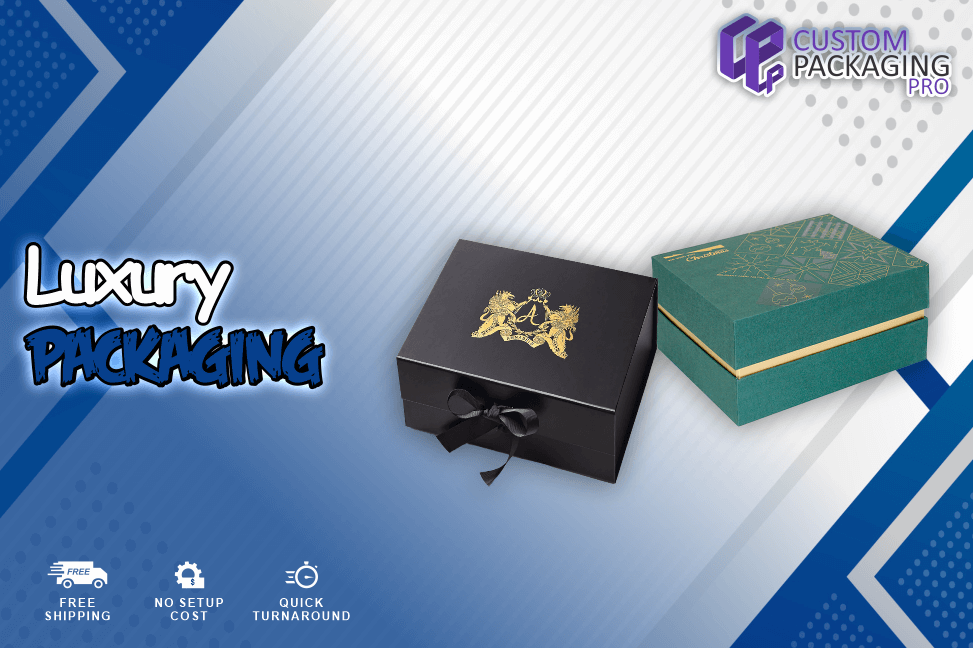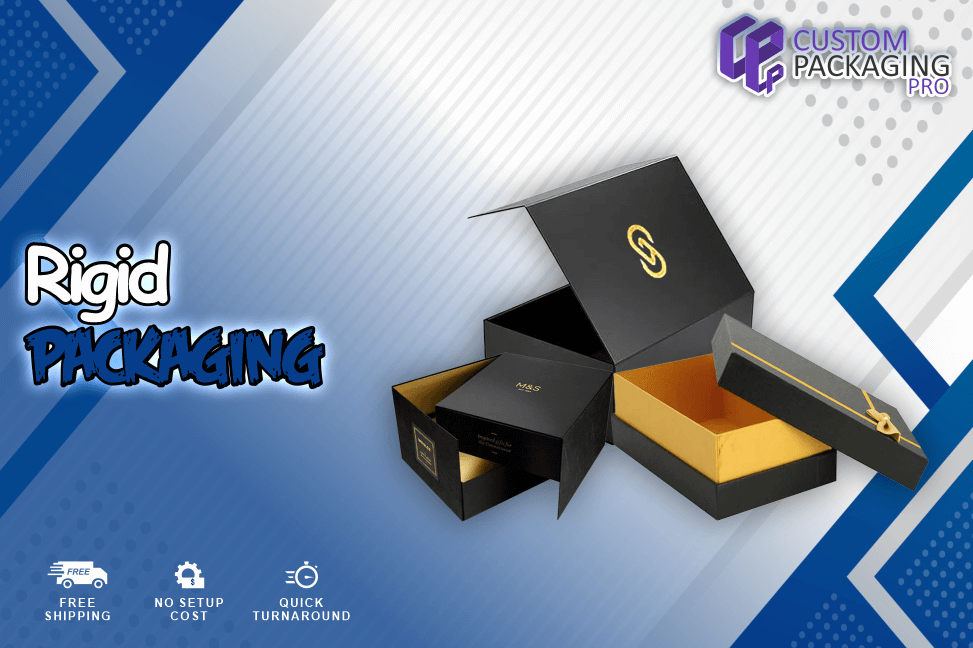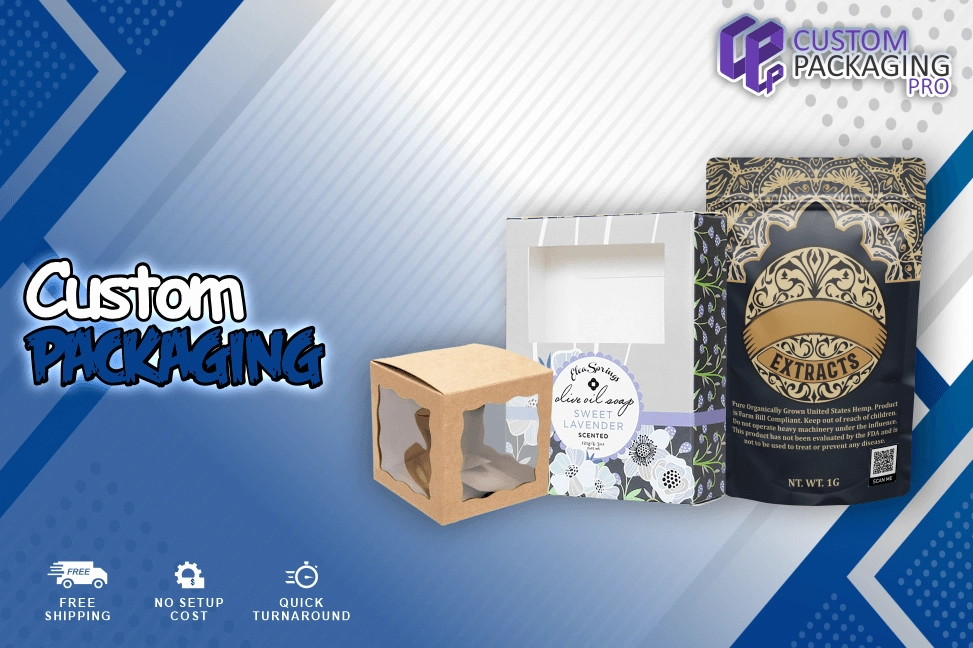January 08, 2024
Maintain Corporate Tactics because of Custom Packaging
Businesses are increasingly using it to stand out in the market in an era of intense rivalry and constantly changing consumer expectations. Custom Packaging has become an essential component of contemporary corporate tactics, vital to consumer experience, brand awareness, and product uniqueness. Its idea transcends the standard, generic boxes that ship and store goods. It entails customizing packaging to complement a brand's identity, core values, and distinctive product attributes. This customized strategy has become crucial for companies looking to create a memorable brand identity and make a lasting impression on customers. One of its main benefits is its capacity to increase brand identification and visibility.
Custom Packaging Helps to Maintain a Positive Product Approach
Potential buyers can sense the company's personality and message, which acts as an extension of the brand. A well-made, branded packaging can be an effective marketing tool in a congested market where many products compete for consumer’s attention. Over time, this visual identity can strengthen customer relationships and promote brand loyalty. Custom Packaging enables companies to demonstrate their dedication to environmental responsibility and sustainability. Consumers are becoming more attracted to brands emphasizing responsible practices as they become more conscious of ecological challenges. It allows businesses to use recyclable or sustainably sourced materials, matching their packaging approach to the preferences of consumers who care about the environment.
Develop a Shareable and Matchless Experience with Retail Boxes
The unboxing experience has become a crucial customer touch point as online buying rules the retail scene. Custom Retail Boxes has benefits for branding, sustainability, and product protection in addition to practical aspects like display and protection. Product-specific packaging minimizes damage during transit by guaranteeing that a product reaches its destination undamaged despite its fragility and unique dimensions. Furthermore, a well-designed one can add excitement and anticipation to customer’s unpacking experience. Therefore, the rise of e-commerce has increased its significance.

Its conventional function of only holding and safeguarding goods has changed. Luxury Packaging is an effective strategy in the modern marketplace for communicating uniqueness, engaging customers, and differentiating brands. Its domain is distinguished by fine craftsmanship, cutting-edge design, and high-quality materials, all of which capture the spirit of the upscale goods it contains. Thus, its primary goal is to make a lasting impression on customers. It establishes the tone for the entire brand experience by acting as the initial point of contact between the customer and the product.
Luxury Packaging Strives to Stay Timeless for Establishment
High-end goods frequently invest essentially in talented craftspeople who infuse their packaging with an artistic quality that transcends simple utility. Its foundation is craftsmanship. A packaging masterpiece results from meticulous attention to detail, hand-finished touches, and every component being considered. Luxury Packaging is elevated to the level of a work of art by intricate foil stamping, embossing, and other embellishments, further emphasizing the brand's dedication to perfection. Its innovative design is another distinguishing feature. Luxury brands strive to stay timeless by constantly seeking new and creative ways to engage their customers. Packaging is an extension of the brand's identity and a source of protection.
Enable Luxurious Product Handling because of Luxury Packaging
In this industry, eco-friendly and sustainable products are becoming increasingly important as consumer’s knowledge of environmental issues grows. Therefore, the unusual shapes, interactive components, and unique structural designs create a sensation of exclusivity, which makes the unwrapping experience one to remember. Luxury Packaging is crucial. So, superior materials improve the aesthetic appeal and exude grandeur and refinement. Specialty inks, high-quality materials, and opulent finishes enhance the physical and visual appeal of handling luxury goods. One of its main features is customization, which enables firms to make their packaging fit certain items or limited-edition releases.

Rigid Packaging Protect Integrity to Place Products Inside
One of its main benefits is its capacity to protect goods from outside influences. This kind of packaging is distinguished by its sturdy construction, which offers a broad range of products longevity and protection. Rigid Packaging is essential for maintaining the safety of goods during transit, extending their shelf life, and protecting them. It is present in everything from food and drink to electronics and medications in our day-to-day existence. Therefore, it is a strong barrier against moisture, air, and physical damage, protecting the integrity of the contents inside. This quality is essential in the food and beverage sector, where avoiding contamination and preserving freshness are top priorities.
Become Prevalent in Showcasing Products with Rigid Boxes
Packaging makers can alter their size, shape, and composition to meet the demands of their particular products better. Another important reason for its extensive use in various industries is its adaptability. Rigid Boxes has several alternatives available to suit varying market niches and consumer tastes, ranging from metal cans to glass jars and stiff plastic containers. Sustainable techniques are becoming more prevalent in the packaging business as environmental concerns grow in importance.
Rigid material’s impermeability guards against contamination, and their sturdy construction guarantees integrity, particularly those vulnerable those environmental deterioration. Rigid Packaging frequently turns out to be more resilient than its flexible competitors, which minimizes product damage during transportation. Because of its endurance, the product is guaranteed high quality when it reaches the customer. It also reduces the need for returns or replacements, which lowers costs for everyone involved in the supply chain. It is the only thing that can offer the protection needed for medical devices, vaccinations, and medications.











